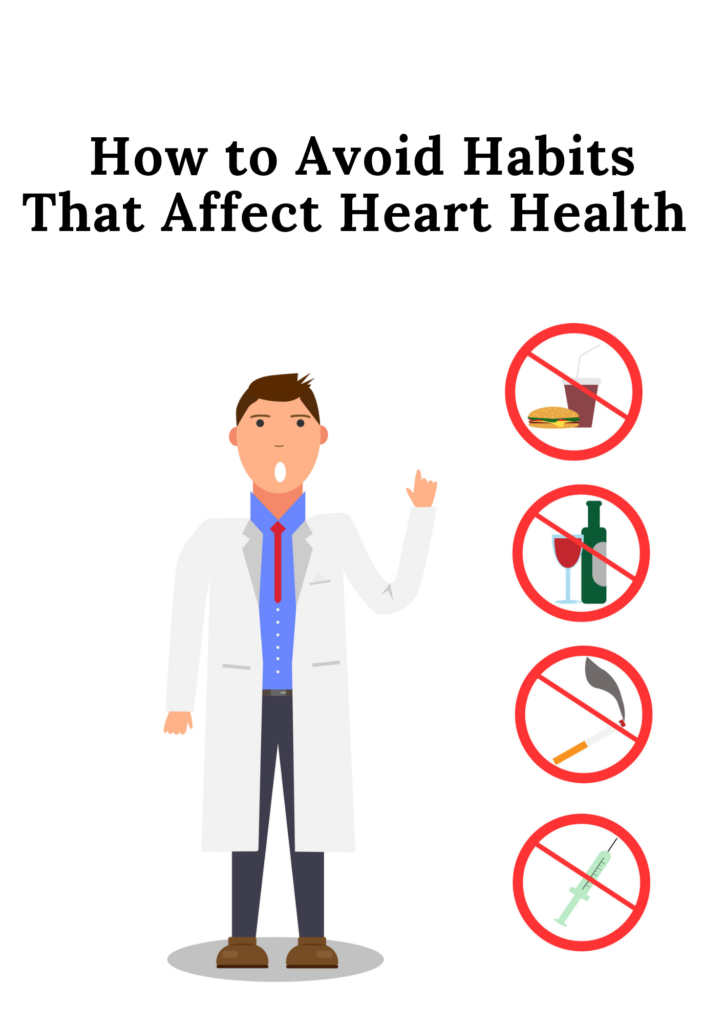The heart is the most crucial human body part, yet our lifestyle seems to deteriorate its health. We don’t even realise how our way of living, habits, diet, etc., affect our hearts until it gets too late. Knowing and breaking the pattern of these harmful heart habits is crucial to lead a healthy life and keep your heart safe.
The cases of death in young persons due to heart attacks are rising rapidly. It seems like every other person is suffering from a cardiovascular-related issue that is restricting them from living their life to the fullest. The news becomes all the more surprising when you hear of a healthy and fit person who stays active most of the time getting a heart attack.

Such situations prompt us to think about how much attention we are paying to our routine and lifestyle and where we are going wrong. Here is a list of a few habits that might be pushing you towards cardiovascular diseases without you realising them and what you can do to avoid them.
A] Habits that affect the heart health
If you want to extend your life by keeping it disease-free, avoid the following habits at all costs:
1. Not maintaining oral hygiene
When you do not brush or floss your teeth, the risk of inflammation is a bit higher. The gums become inflamed, and germs can enter your bloodstream, clinging to fatty deposits in the blood vessels. When these issues take the shape of periodontal diseases and they remain untreated for a long time, they can pave the way for cardiovascular diseases.
Ways to keep this habit at bay:
- Brushing your teeth twice a day and flossing at least once doesn’t take much time.
- Thorough cleanings and examinations and visiting a dentist at least once every six months can help you stay away from heart surgeries and related needs.
2. Excessive drinking
When you drink excessively or just on occasion be advised that can cause your heart muscles to weaken. It causes the heart functioning to become erratic. The stomach lining and liver may get inflamed, leading to liver cancer. Although the antioxidants in red wine are known to be healthy, the bad outweighs the good when you do it in excess. The heart distress this issue causes takes months and years to show up. Moreover, even if you limit your servings, if your heart, stomach, or liver gets damaged, the condition won’t be salvageable.
Ways to keep this habit at bay:
- Do not wait for the effects of excessive drinking to show.
- Limit your intake and serving portions to one or two drinks.
- Also, according to your metabolising ability, maybe saying no to a drink would be a better choice for you.
3. Leading a sedentary life
Not being active and leading a life as a couch potato is one of the primary reasons for heart-related diseases among people. When you indulge in cardiovascular activity, your heart functioning improves, and you burn calories, leading you to lose weight. However, a sedentary lifestyle can make you obese, which further attracts various problems, including heart strokes. Therefore, incorporating activity into your life becomes highly crucial.
Ways to keep this habit at bay:
- Go for a walk in the fresh air for at least 30 minutes every day.
- After every hour of sitting, roam around and do light exercises for 10 minutes.
- Any exercise and activity are better than no exercise, so count doing yard work, walking, swimming, etc., but do them for 30-45 minutes daily.
4. Excessive sodium intake
Feeding high levels of sodium to your body can spike your blood pressure, leading to cardiovascular diseases. When you eat processed, prepackaged, and restaurant food like pizza, you may take in higher salt levels. Since it retains fluids in the body, you need to cut its consumption.
Ways to keep this habit at bay:
- It takes years of excessive sodium intake to yield cardiovascular diseases. Therefore, making improvements soon can help you stay healthy.
- Consult your doctor and adhere to the salt level recommendations they give you based on your condition.
Bottom Line
We may not even know how the littlest of things may harm us in the long run. However, it’s never too late to take steps toward boosting your heart health and promoting healthy ways of living.